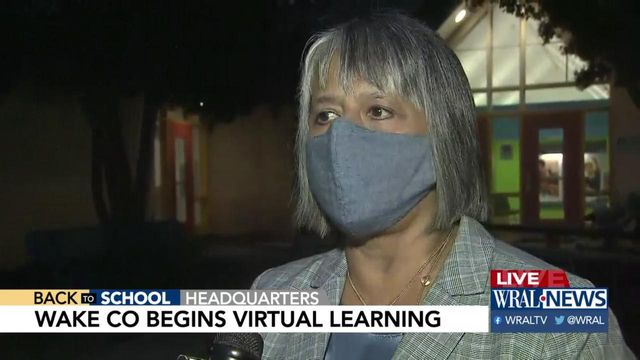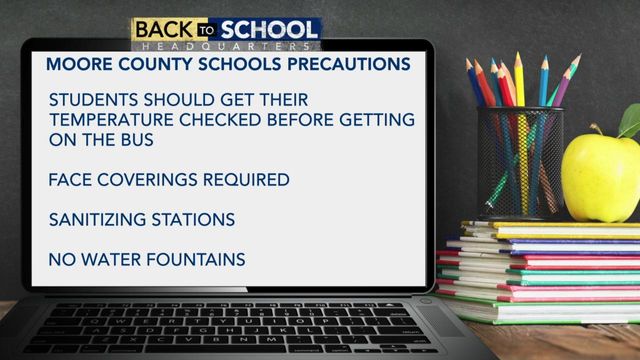Cooper administration leaned toward in-person learning, delayed decision after call with Fauci
DHHS documents show some back and forth as state health and education advisers wrestled with school reopening plans.
Posted — UpdatedPlans A, B and C were on the table, with various levels of in-person and online learning. A June 25 Department of Health and Human Services presentation for the governor recommended Plan B, in-person learning with schoolhouses open at reduced capacity for social distancing, plus an online component.
But four days later, a new proposal emerged. The department now recommended Plan A, essentially a full reopening, albeit under pages of new guidance on health screenings and other infection control measures.
The state would also up the ante on masks under the plan, requiring them for students down to second grade.
Guidance released a few days earlier by the American Academy of Pediatrics had been persuasive, as had a publication from the Massachusetts Department of Elementary and Secondary Education, administration officials said. Both focused on the importance of in-person learning on a child's well being and the likelihood that transmission rates would be low among young students.
But the plan didn't sit well enough as a promised July 1 public announcement loomed. In-person learning had always been the goal, but the state's transmission numbers weren't cooperating, and other states were seeing "alarming spikes," Cooper senior adviser Julia White said last week.
"We had thought in May we would be able to say we had significant decline in the key metrics," White said.
Cooper, White and DHHS Secretary Dr. Mandy Cohen talked it over in a June 29 call with Dr. Anthony Fauci, director of the National Institute of Allergy and Infectious Diseases and, in many ways, the country's point man on coronavirus. The announcement then was two days away.
“I would just delay that," Fauci said, according to White.
No one would be required to offer in-person learning. Schools that did would no longer face the 50 percent occupancy restriction initially contemplated with Plan B, but all students would have to wear masks, regardless of grade, and occupancy would need to be low enough for people to keep 6 feet of distance.
The basics are laid out in a July 9 DHHS presentation.
"Tries to find middle ground on a decision with little consensus," one slide says.
"Easier to move from Plan B to Plan A than the reverse," another bullet point states. "May provide motivation to people to help improve metrics so Plan A is possible."
These three presentations, from late June and early July, were among the documents released to WRAL News in response to a request for the governor's reading material ahead of the school announcement. They show a back and forth the administration engaged, leading up to the July 9 presentation.
"The final decision was made jointly by DHHS and the Governor after that (July 9) meeting occurred, and there was full agreement," Susan Gale Perry, chief deputy secretary at DHHS, said in an email. "The decision to reopen under modified Plan B was announced July 14, and the updates school guidance was published on that same date."
White, Perry and Geoff Coltrane, the governor's senior education adviser, spoke last week to WRAL News about the documents and the run-up to the schools announcement. Advisers were "leaning in to Plan A" for much of the process, White said, but "unfortunately, the numbers did not follow that path."
The initial July 1 announcement plan was set in part because year-round schools typically open in July. But in June, Coltrane said, most of them pushed their start dates back, “so the July 1 date was not as pressing."
"Getting students back in school as soon as it is safe is not some 'pie in the sky' here," Porter said. "That is the ultimate goal."
Related Topics
• Credits
Copyright 2024 by Capitol Broadcasting Company. All rights reserved. This material may not be published, broadcast, rewritten or redistributed.






